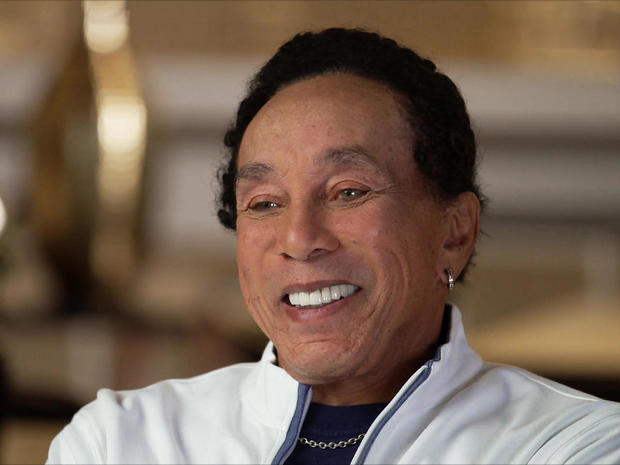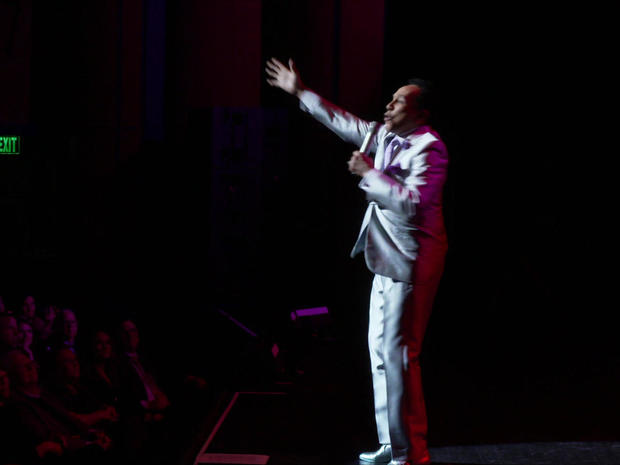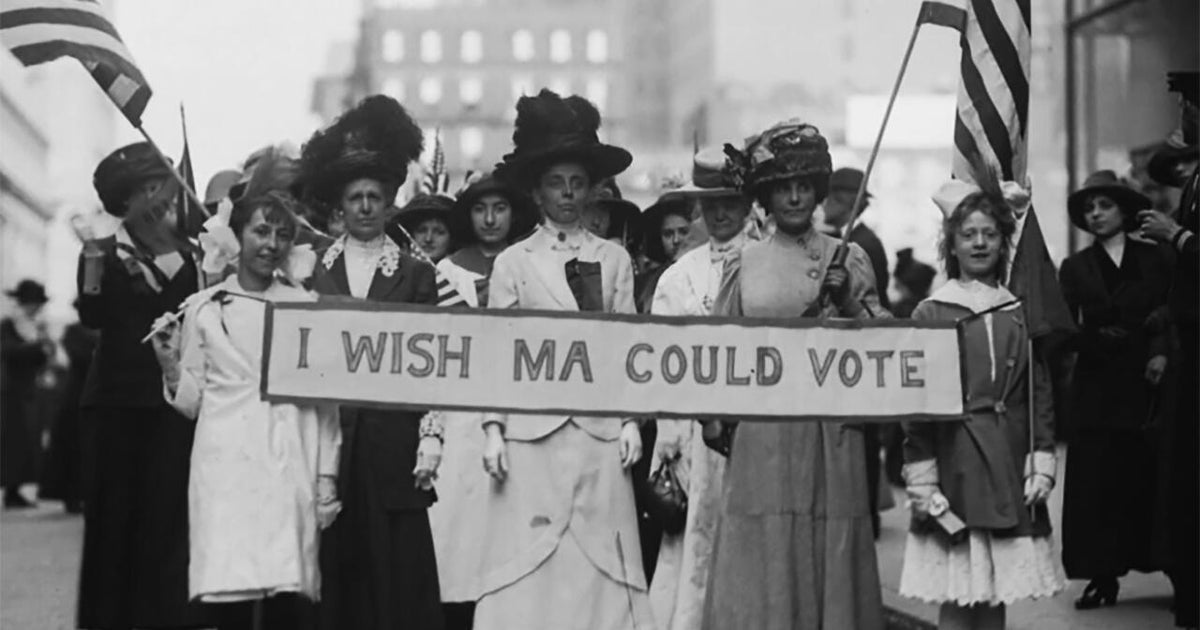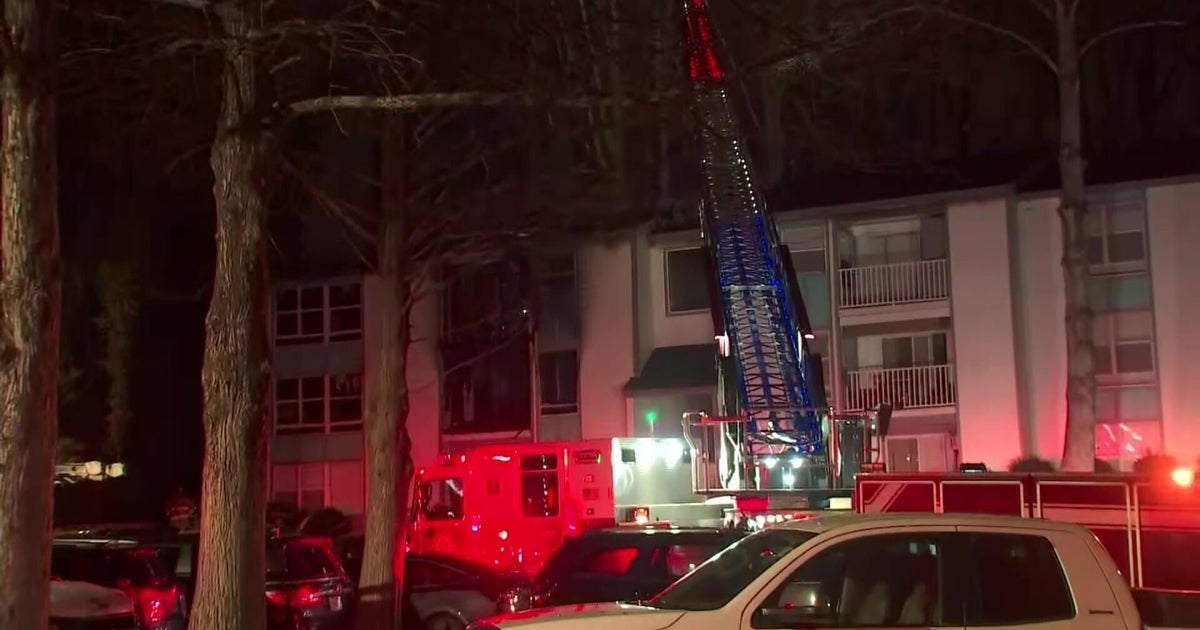Smokey Robinson: Unstoppable
Smokey Robinson was only 28 when he made this appearance on "The Ed Sullivan Show" in March 1968, but he was already a force in the music business:
In his career, Robinson has written or co-written upwards of 4,000 songs, most of them about one thing: love. "Shop Around," "The Way You Do the Things You Do," "Ooh Baby Baby," "Get Ready," "Who's Loving You," to name a few.
Smith asked Robinson, "What makes a great love song?"
"You tell me! Because I'm gonna stock up!" he laughed.
He's the man who helped put Motown on the map, writing "My Guy" for Mary Wells …
… and "My Girl" for The Temptations:
And some of Smokey Robinson's lyrics are immortal, too, like "The Tracks of My Tears." He explained how he came up with the final line of the chorus: "I came up with the first three lines of the chorus – Take a good look at my face, see my smile looks out of place, if you look closer it's easier to trace. Trace what? 'Trace that I'm here and you're not'? No. 'Trace …' I went through 20 of those, you know?
"And one morning, just by chance, I was shaving. and somehow or other the thought just came to me, 'What if somebody had cried so much their tears left tracks on their face?' I said, 'That's it.'"
And like so many of his songs, "The Tracks of My Tears" has been picked up by artists from every corner of the musical universe, from Dolly Parton to Boys II Men and Linda Ronstadt.
Born and raised in Detroit, William Robinson Jr, nicknamed "Smokey" by an uncle, formed the group that became The Miracles in high school. They were one of the first acts signed by Berry Gordy at the fledgling Motown label, and they helped start a musical dynasty.
But back in the mid-sixties, not all of the world was ready for them. "Touring the South was rough back in those days," Robinson said. "We actually started touring during the height of the civil rights movement, you know? Down South, you can't even come in: No, you're not comin' in here. We've been shot at for trying to go to the toilet, you know what I'm saying? And we would go to restaurants, and we'd sit there, and you'd sit there for sometimes an hour before anybody would come in there and say, We wish you would leave. Not, 'What can we offer you?' We wish you would leave."
But that wasn't about to stop them from touring. "We were young, and we was just out there doing what we loved. They weren't gonna stop us," he said.
And they were in fact unstoppable. Smokey Robinson, and others in the Motown family, didn't just sell records; they helped break down barriers, even down South. He said, "We first started going there, everything was separate. Everything was segregated. Rope down the center of the concert hall. White people on this side, Black people on this side, not even looking at each other.
"And eventually, after about a year or so, we go down there, and you see white boys with Black girlfriends, and Black boys with white girlfriends. And they were dancing together and all this stuff, 'cause they had a common love. They had this music that they all loved. So, 'Hey man, forget all this racial stuff. We're gonna dance and listen to this music and have a good time.' And it started to happen like that. And I'm very proud of that."
Since then, he's won just about every award in the industry, some more than once. And this year he's been named the Recording Academy's MusiCares Person of the Year, along with his old friend Berry Gordy.
That's not to say there haven't been a few rough patches over the years, like a bout with substance abuse. Robinson said, "It's probably the worst personal time of my life that I've had. My drug of choice is marijuana, okay? I still smoke marijuana. When I get ready to, I'm so glad that they legalized it, you know, so I wouldn't have to, you know, go like we used to and buy it in the dark, you know what I mean?"
But it was a cocaine addiction in the '80s that nearly finished him, until an encounter with a minister at an L.A. church set him straight: "She said, 'God sent you here to be healed.' And I walked in that church that night, I was a junkie. I walked out, I was free."
"That was it?" asked Smith.
"That was it. That was the end for me, May of 1986. That was it."
Even now, the road still calls: "Sunday Morning" caught up with Robinson at a gig last month at the Mesa Arts Center near Phoenix, and his fans lined up to see him.
Smith asked, "Do people come up and tell you, 'Oh, I had my first kiss to this song,' or, 'I had a baby thanks to this song'?"
"Yeah, yeah. People tell me that. I tell them they owe me!" he laughed.
Smokey Robinson will be 83 later this month, but you'd hardly know it. He's still very much into writing and recording, and with a new album, titled "Gasms," set to drop in April, he can still bring the heat.
Smith said, "Your new album makes me blush a little bit when I listen to some of those songs."
"All right!" Robinson said.
"Was that the intention?"
"Yeah. It was. 'Gasm' is anything that feels good."
And few things feel quite as good as when Smokey sings.
To hear "If We Don't Have Each Other" by Smokey Robinson, from his album "Gasms," click on the video player below:
Smith asked, "When we're talking about legacy, do you think about that, decades from now, maybe even centuries from now, people are still gonna be listening to your music, singing your songs?"
"You know something? I hope that decades and centuries from now they're still listening to my music," he said. "I tell everybody, 'I wanna be Beethoven, man!' Since I'm in music, and I'm a songwriter, I want to write music that people want to sing, and want to hear, and want to play, and have a good time to. So, it's a dream come true."
He sang around 40 concerts last year – not bad for someone over 80. But he can still remember a time when he and The Miracles would play 35 nights in a row. "That was nothing!" he said. "We were young. We had that energy, you know? You're gung ho, you know what I mean? Now? Unh-uh."
"That's not gonna happen now?"
"No, that's not gonna happen now. No, I do as many as I can, 'cause I love my job. I love, I love my job."
"You still do a lot of tour dates."
"Yeah, yeah. But you know, I can't find a replacement!"
And when it comes to Smokey Robinson, neither can we.
The 65th Grammy Awards will be presented on Sunday, February 5, and will be broadcast live on CBS and on demand via Paramount+ beginning at 7 p.m. ET.
For more info:
- smokeyrobinson.com | Concert info
- "Gasms" by Smokey Robinson will be available April 28. Click here to pre-order
- MusiCares
- Mesa Arts Center, Mesa, Ariz.
Story produced by John D'Amelio. Editor: Steven Tyler.






